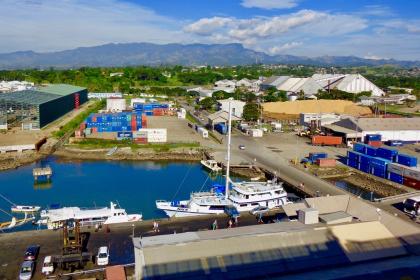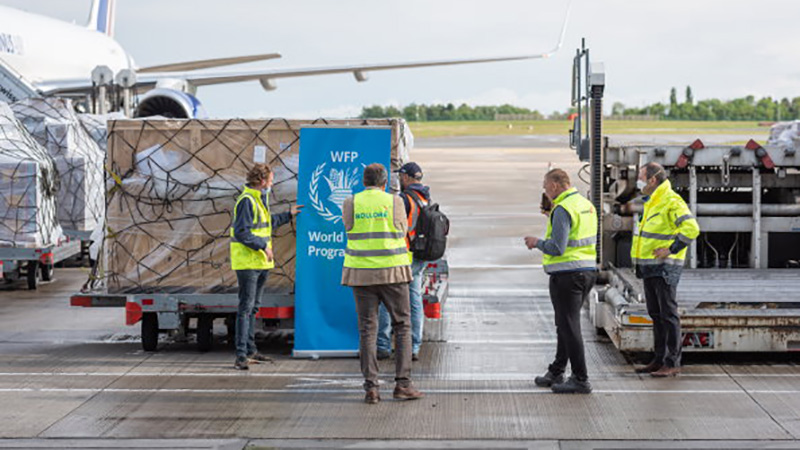Crisis and disaster management is a global issue but there is a particular need in Small Island Developing States in the Pacific due to their geographical location and climate change issues.
This project responds to a call for action, to address challenges related to life-saving emergencies. With 13 countries in the Pacific already using UNCTAD’s ASYCUDA system, this provides a potential for humanitarian assistance through ASYREC for a region prone to disasters, and thus an opportunity to create a template for other regions to use in the future.
The UNCTAD ASYCUDA Programme partnered with OCHA to develop a dedicated solution, named The Automated System for Relief Emergency Consignments (ASYREC), compatible with international standards and compliant with automated customs systems. Its main objective is the facilitation and expedited processing of international relief consignments in case of humanitarian crisis, natural disaster, or complex emergencies such as the Covid-19 pandemic.
Following on from the “COVID-19 project 2023X Trade and Transport and the innovative ASYREC tool” project which features the development and piloting of the ASYREC software plus the development of an e-learning platform including presentation videos of the ASYREC concept, this new initiative for the 15th tranche will build on the work already done.
The e-learning platform will be completed with all ASYREC-related material and deployed. Furthermore, regional seminars for awareness and training will ensure that beyond Vanuatu countries in the Pacific will be ready to deploy ASYREC. The second pillar of the project will be to assist the beneficiary countries in designing the institutional architecture to ensure that regulations and border agencies coordination are in place for fast-track emergency supply.
Objective of the Project
To strengthen the capacity of countries in the Pacific region to facilitate and expedite the processing of international relief consignments to address humanitarian crises, natural disasters, or complex emergencies such as the COVID-19 pandemic.
Activities
- Enhanced capacity to facilitate and expedite the processing of international relief consignments for the relevant stakeholders in the Pacific region implementing all phases of ASYREC.
- Improved coordination amongst the respective governments and all relevant stakeholders in ongoing disaster preparation and readiness but also during and after the emergency phase.
Intended Outcomes
This work is expected to contribute to strengthening the capacity of targeted beneficiary countries in the Pacific Region in using ASYREC to facilitate and expedite the processing of international relief consignments to timely address humanitarian crisis, natural disasters, or complex emergencies such as the Covid-19 pandemic, which would be demonstrated with the implementation of an online ASYCUDA-ASYREC e-learning platform in member states and the formulation of a national framework on the supply of humanitarian goods in time of crisis based on national, regional, and international regulations.
Link to the SDGs
The project directly supports the following Sustainable Development Goals:
#3, Good health and well-being
D Strengthen the capacity of all countries, in particular developing countries, for early warning, risk reduction and management of national and global health risks
#9, Industry, innovation, and infrastructure
A Facilitate sustainable and resilient infrastructure development in developing countries through enhanced financial, technological and technical support to African countries, least developed countries, landlocked developing countries and small island developing States
#13, Climate action
1 Strengthen resilience and adaptive capacity to climate-related hazards and natural disasters in all countries
#16, Peace, justice and strong institutions
7 Ensure responsive, inclusive, participatory and representative decision-making at all levels
#17, Partnerships for the goals
7 Promote the development, transfer, dissemination and diffusion of environmentally sound technologies to developing countries on favorable terms, including on concessional and preferential terms, as mutually agreed
And indirectly supports:
#11, Sustainable cities and communities
11.5 By 2030, significantly reduce the number of deaths and the number of people affected and substantially decrease the direct economic losses relative to global gross domestic product caused by disasters, including water-related disasters, with a focus on protecting the poor and people in vulnerable situations
Monitoring and Evaluation
UNCTAD will use the logical framework achievement indicators, developed according to UNCTAD internal Result Based Management requirements, to monitor project results during the project implementation period and beyond.


